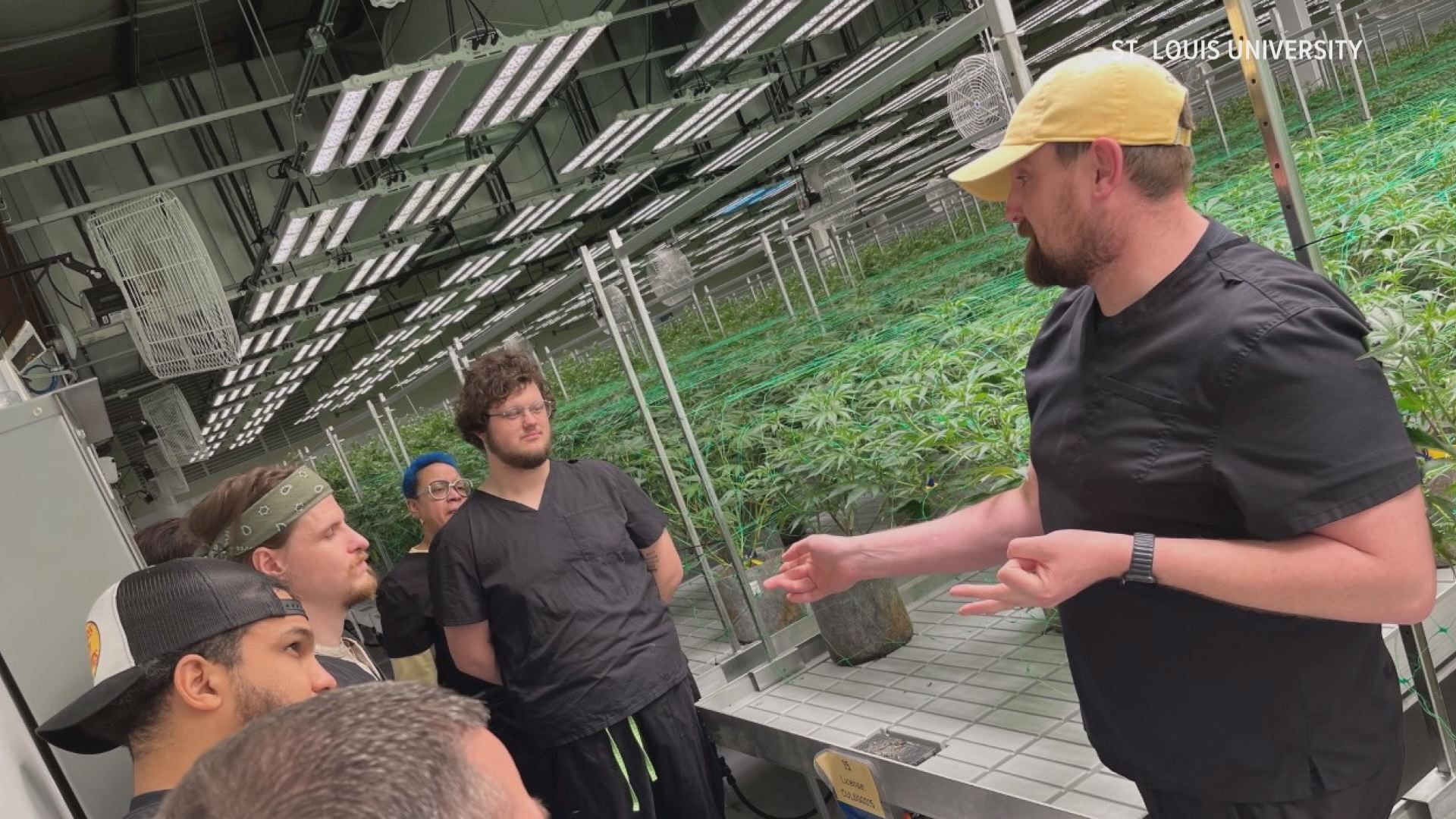ST. LOUIS — Recreational marijuana is now legal in Missouri and business is booming. With the rise in customer sales in the state of Missouri also comes a rise in interest in learning about selling recreational marijuana.
Universities are responding by offering entire programs for graduates looking to learn about the marijuana industry.
Jeff Rowse is one of those students. He completed the Saint Louis University Cannabis Science and Operations Certificate, which launched in 2020, and a Medical Science and Therapeutic Management Certificate in 2022.
He’d always been interested in the science of Cannabis and decided to make it his career when he was laid off during the pandemic.
“I was unemployed, so I treated it like a full-time job,” Rowse said. “Get up, make breakfast, go to work for eight hours, study. Do more than that, if possible. Because I knew this is the only way I was going to get a job in the industry.”
He wasn’t just taught about the business of the buds, he studied the science of the plant and the laws to sell.
“It’s one of the most highly regulated industries in the world,” he said. “The paperwork that has to get gone through just to check the product.”
SLU started offering its certificate nearly three years ago. Back then, the online program had just 80 students. Now, it has 300 from 40 different states.
“This has been a passion for so long for so many people,” said Stacy Godlewski, the Cannabis Science and Operations Program Director. “Now we are creating an opportunity to legitimize their careers, their hobbies.”
There are certainly a lot of careers growing.
Nationwide, the cannabis industry created 428,000 jobs in 2022, it’s a 33% increase in one year. That’s according to the cannabis marketplace and online resource Leafly.
SLU’s courses teach marijuana engineering, pharmacology and the legal requirements to operate a dispensary. Northwest Missouri State University in Maryville also offers certificates in cannabis studies.
“We try to touch upon every piece of the industry so that we have well-rounded employees out here,” Godlewski said.
Rowse felt like the tuition he paid was worth it. In addition to being a budtender, he also hosts a podcast and will be teaching courses at SLU in the fall. He does it not just to sell but educate.
“It reawakened a fire in me that I had not had anything to fuel,” he said. “I knew it was cannabis but never had the opportunity.”
Eighteen other universities nationwide offer similar courses and certificates.

